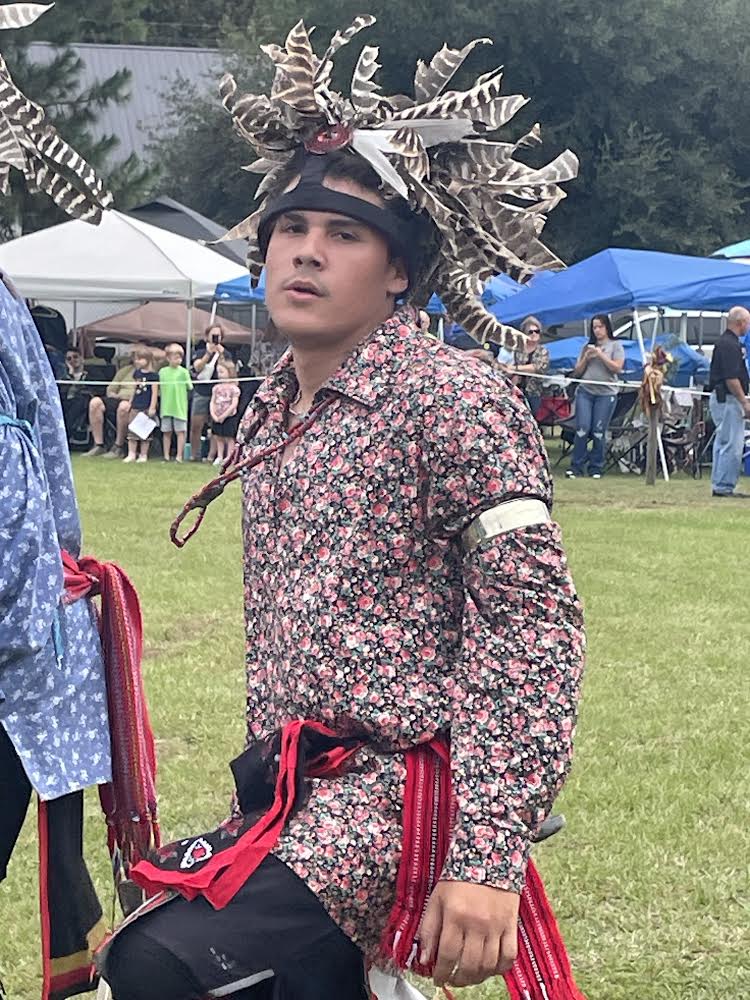 Wendy Locklear, Coharie Tribe Indian Education Coordinator for Sampson County Schools and tribal member, will give a free presentation on the Coharie tribe from 5:30
Wendy Locklear, Coharie Tribe Indian Education Coordinator for Sampson County Schools and tribal member, will give a free presentation on the Coharie tribe from 5:30
p.m. to 6:30 p.m., Nov. 4 at the Hope Mills Community Library Meeting and Activity Room, 3411 Golfview Road. Locklear is committed to passing Coharie traditions on to
the next generation. Her son, Caleb, will open and close the event with a hand-drumming song and will demonstrate a traditional dance that tells the story of a deer
hunt. It includes the emotional highs and lows of stalking a deer, taking the shot and giving thanks for the harvest.
The Cohari tribe received state recognition in 1971. North Carolina recognizes seven other tribes: the Eastern Band of Cherokee, which is the only one with federal
recognition; the Lumbee; the Haliwa-Saponi; the Sappony; the Meherrin; the Occaneechi Band of the Saponi; and the Waccamaw Siouan. The Coharie number over
3,000 and are located mainly in Sampson and Harnett counties. Tribal members reside in other counties and states but are required to engage with the community and stay
abreast of tribal news. Within Sampson County, there are four main communities: Shiloh, New Bethel, Antioch and Holly Grove.
The Cohari descend from the Neusiok tribe, which inhabited lands along the Neuse River. Waterways were essential for trade and establishing settlements. One example of
the Coharie’s continued devotion to water is the 2015 effort to reclaim the Coharie River and its connecting tributaries and distributaries. Into the 1980s, beaver populations were controlled by trapping and hunting, and beaver dams collected water that attracted fish, creating excellent fishing areas. As the beaver became overpopulated, the river became clogged, swampy and unusable. Hurricanes added deadfall to the problem. In 2014, the Coharie received a small grant from the North Carolina Forest Service to start a river restoration project. Fifteen volunteers with personal chainsaws spent a collective 500 hours cleaning up the river. Now the Coharie conduct guided kayaking tours along the
4.5-mile stretch of cleared water.
The tribe also places a high value on education. The New Bethel Indian School, established in Sampson County in 1859, was one of the first schools for Native American students in Sampson County. It preceded the East Carolina Indian School by 84 years. The Coharie tribe serves as the Local Educational Agency, meaning it holds legal authority to administer the Indian Education Program for Native American students in Sampson County from pre-kindergarten through high school. The East Carolina Indian School building serves as the current tribal administrative offices at 7531 US Highway 421 N in Clinton. Another tribal building is located in Harnett County at 1934
Arrowhead Road in Dunn.
Agriculture is another pivotal connection to the land for the Coharie. Community gardens yield fresh produce year-round, and an annual sorghum harvest brings the Coharie and wider community together in the fall. Raised in the heart of Coharie land, the crop is harvested and sourced by the Coharie people with profits going to purchase more seeds and seedlings for the community garden. Sorghum is not only a sweet syrup but its seeds can be ground into a paleo-friendly flour for those with gluten intolerance or celiac disease. The tribe’s powwow is open to the public and held every September. You can see the 600-year-old canoe found in the South River that is housed in the Sampson County tribal center. You’ll also discover a strong quilting tradition among the Coharie culture. To learn more, go to coharietribe.org; to contact or schedule
a presentation with Locklear, email coharieindianeducation@gmail.com.

 How to resolve AdBlock issue?
How to resolve AdBlock issue? 








